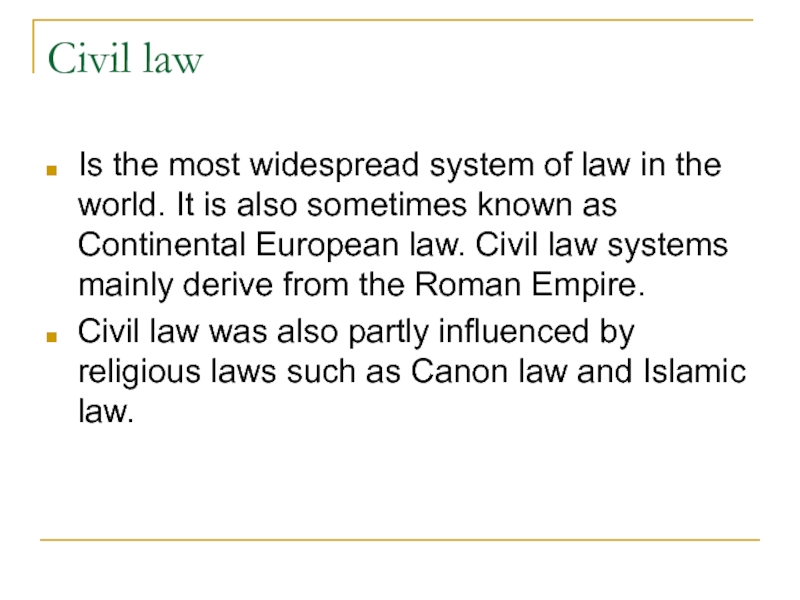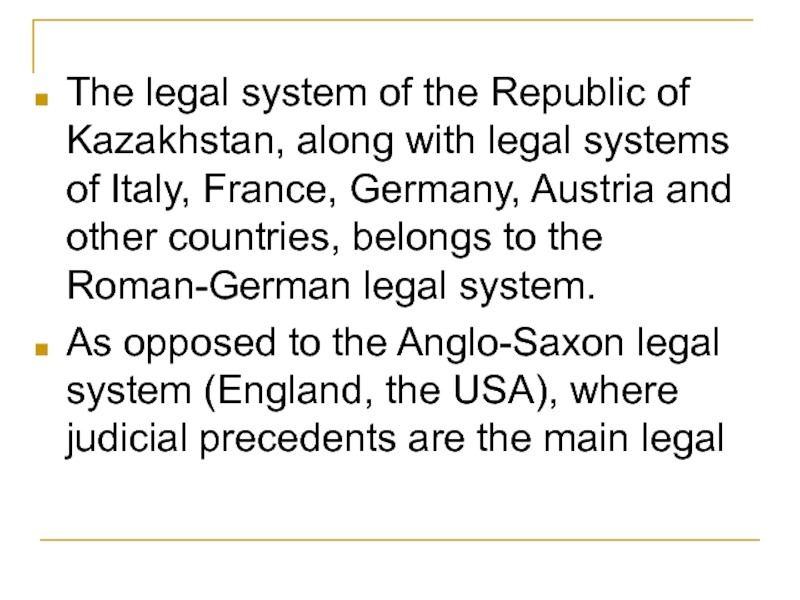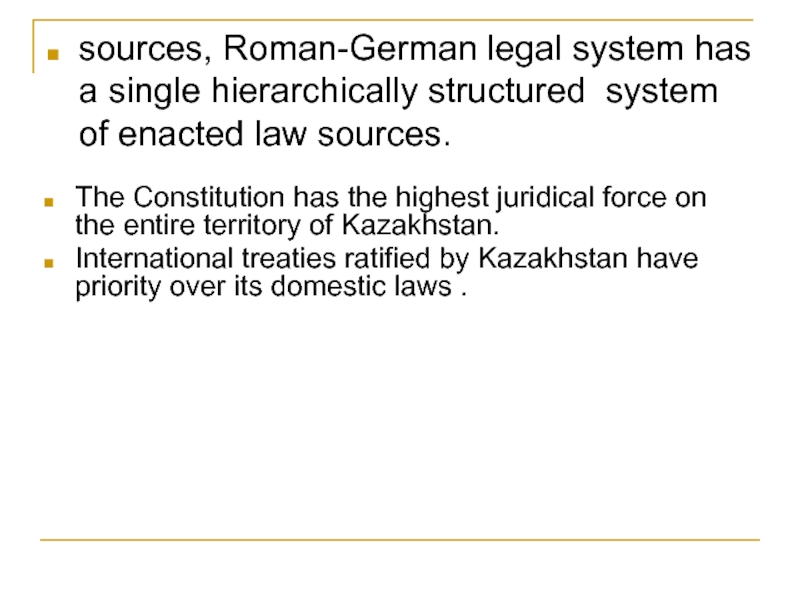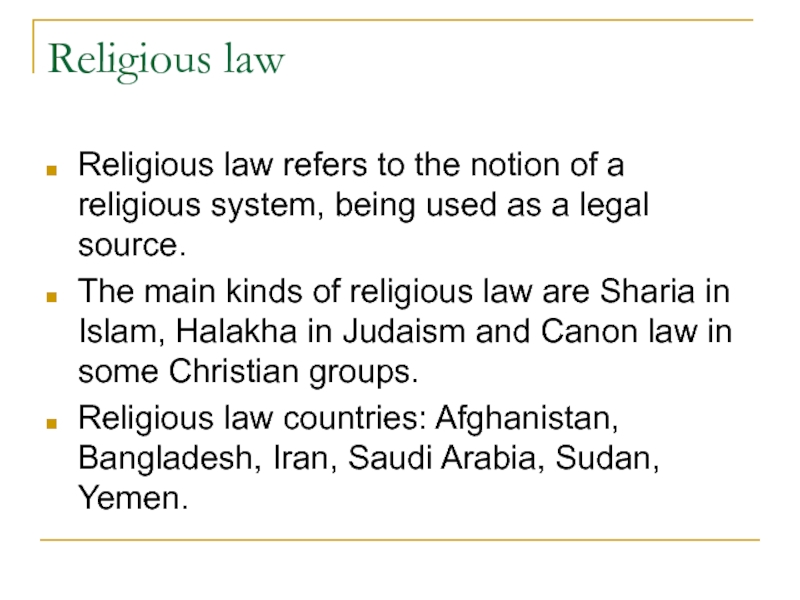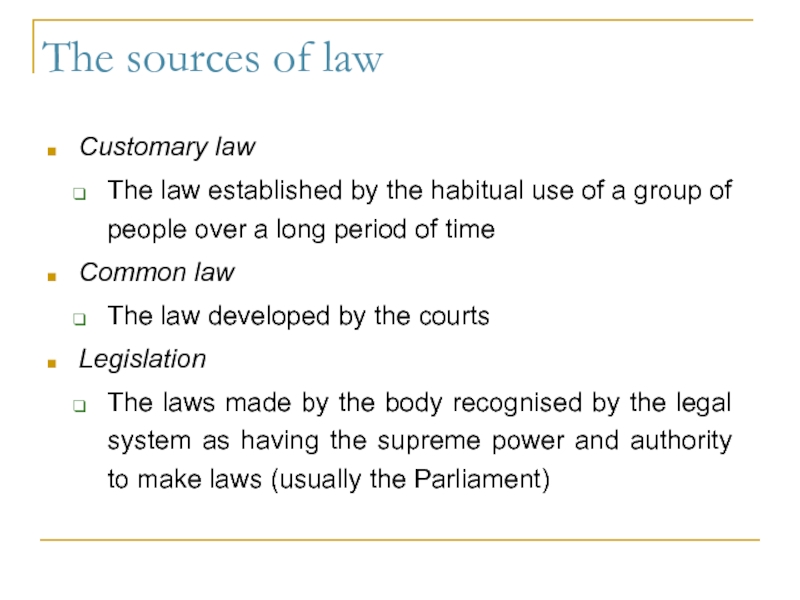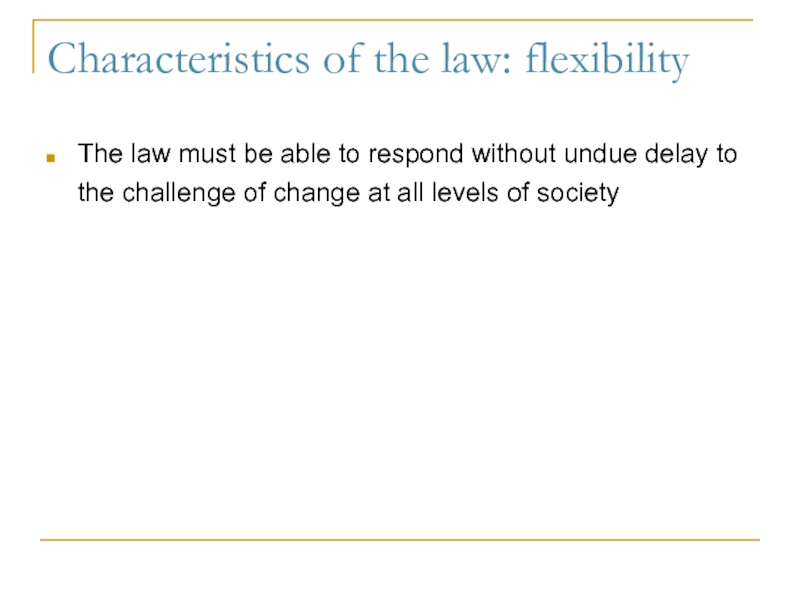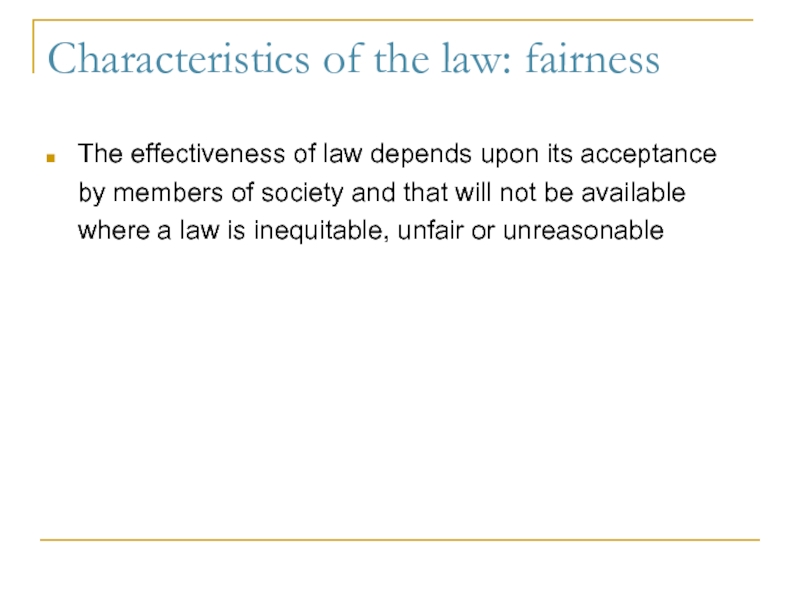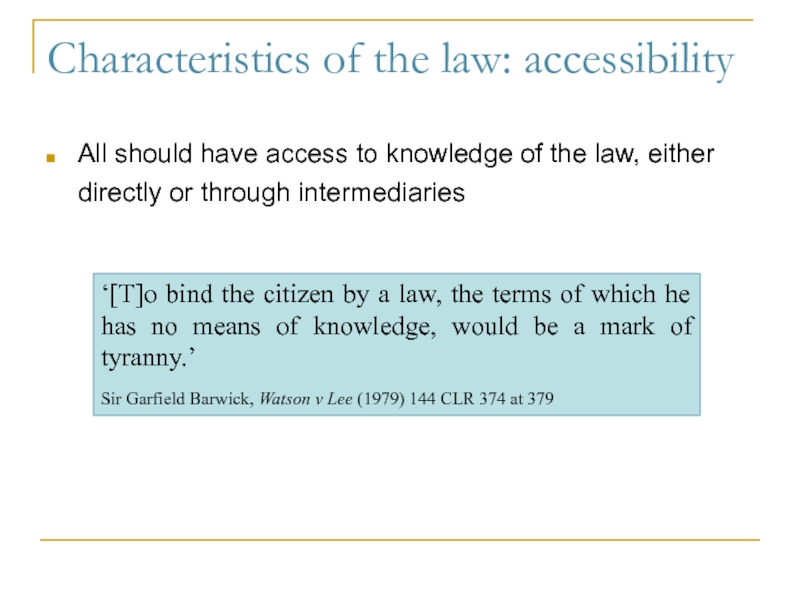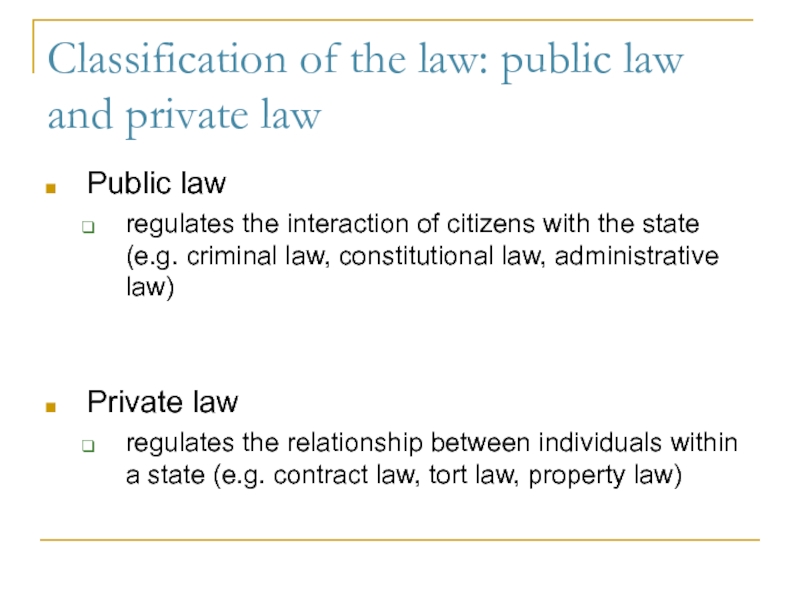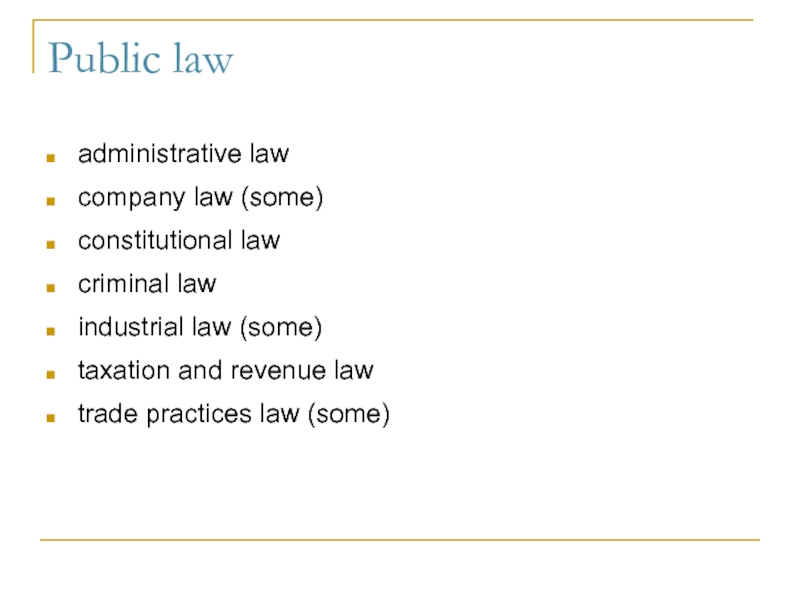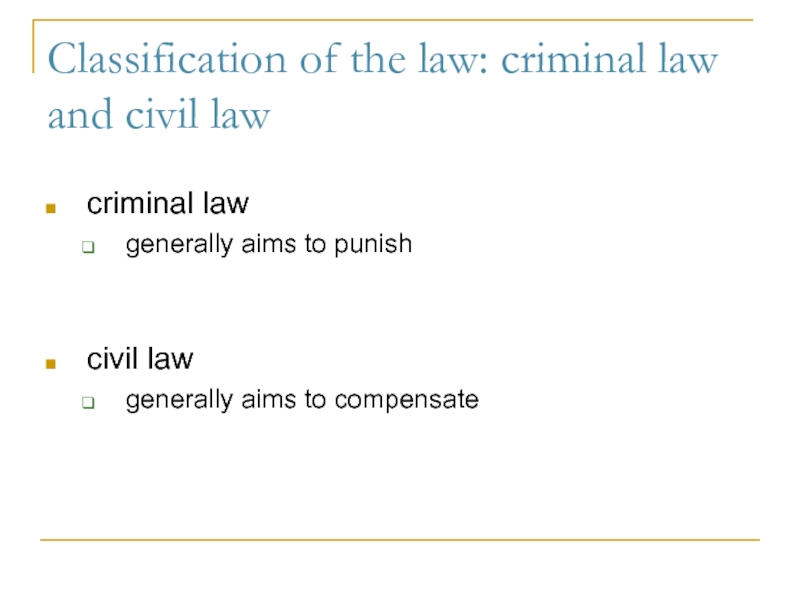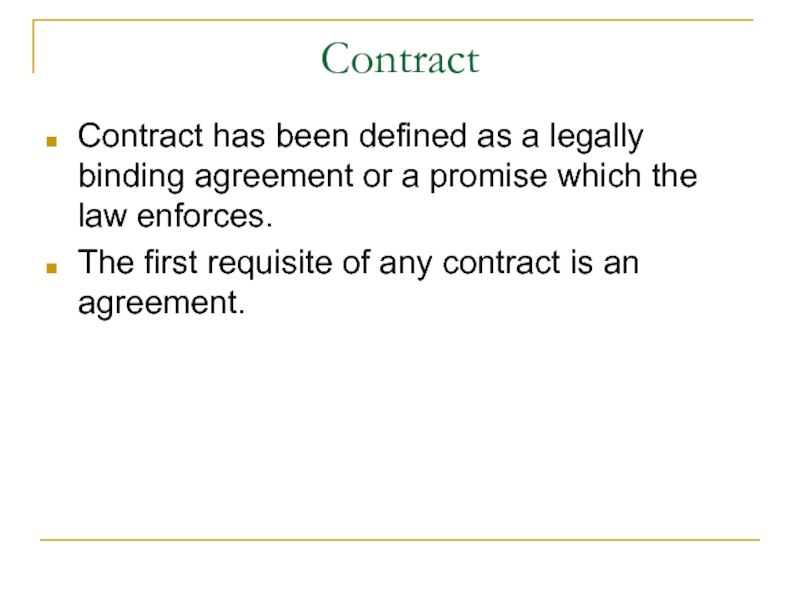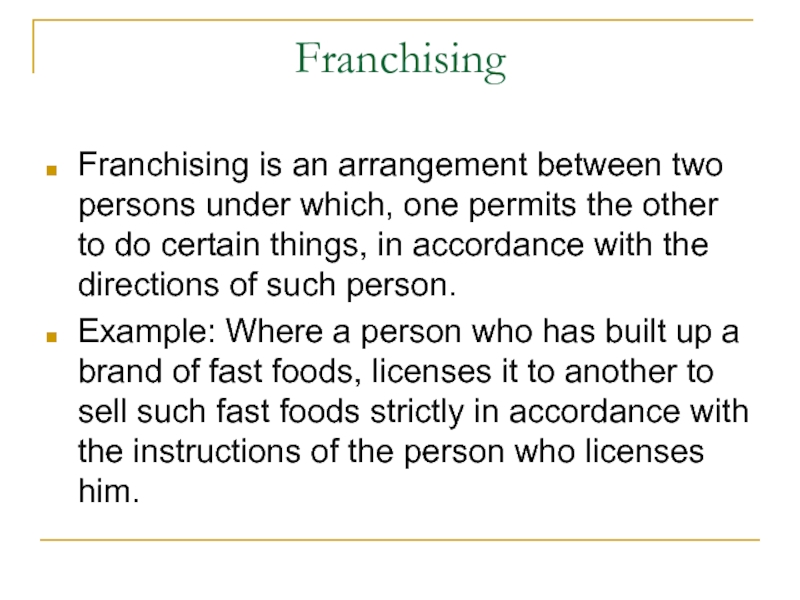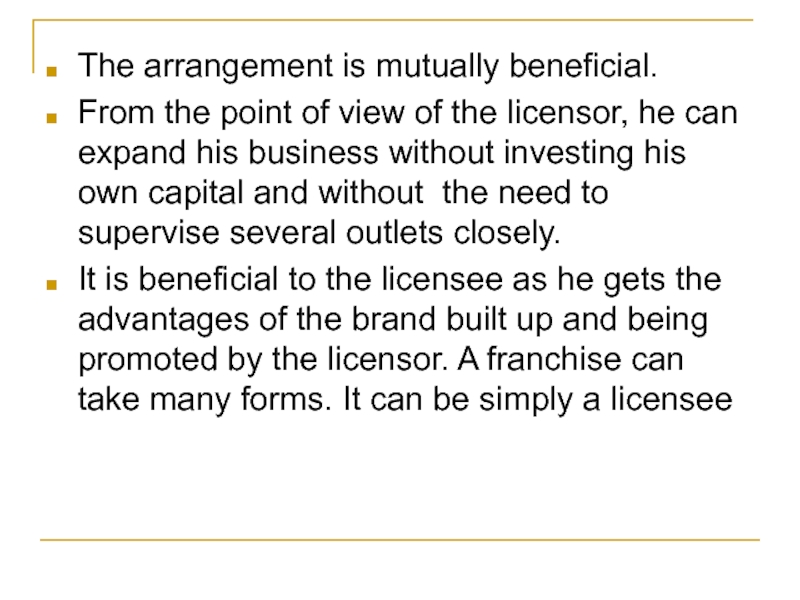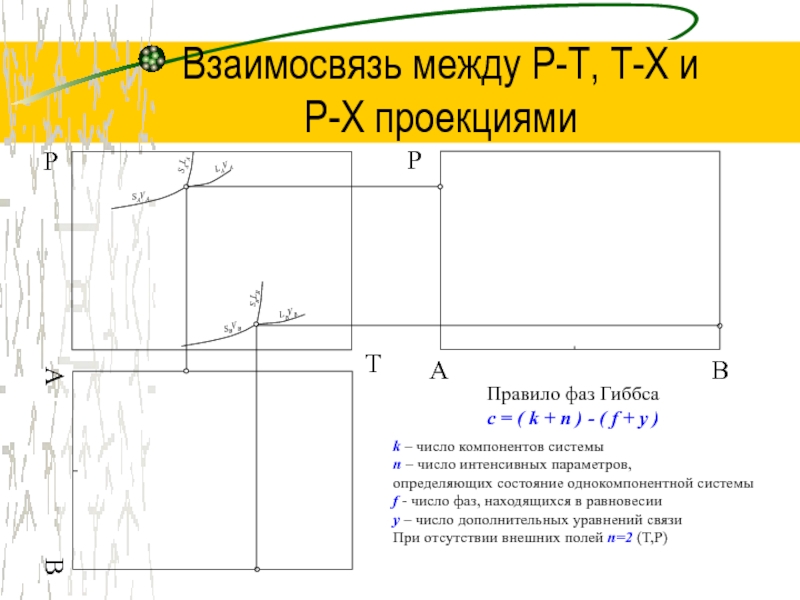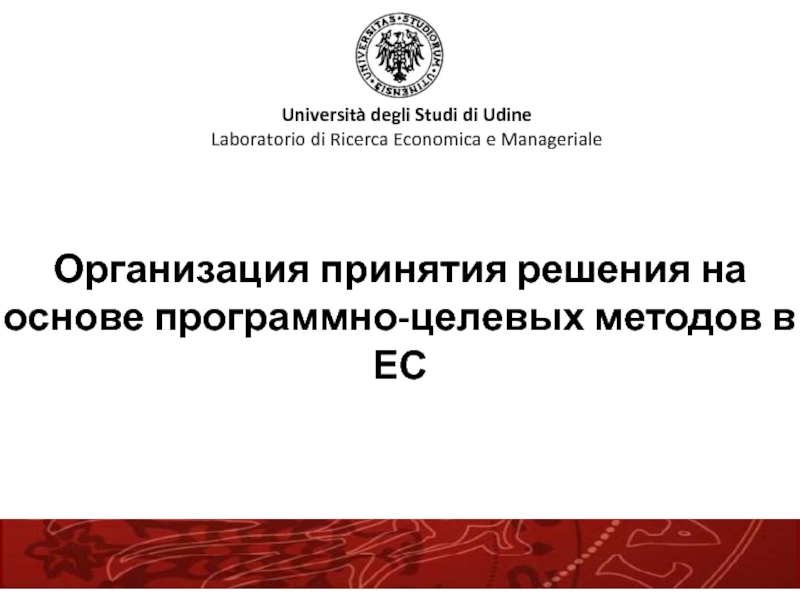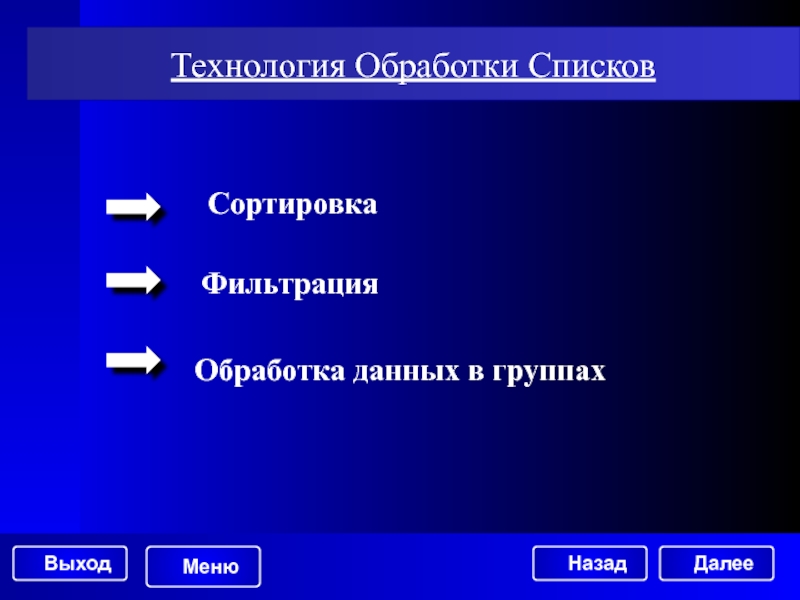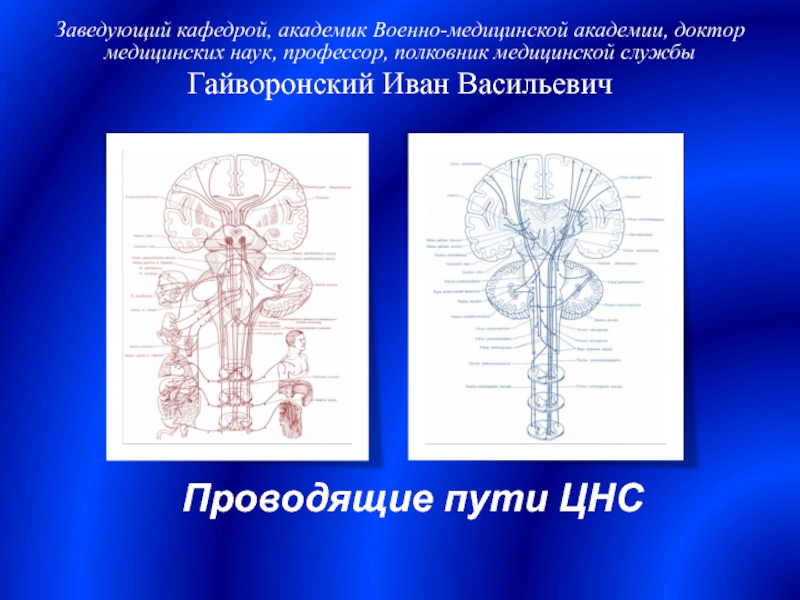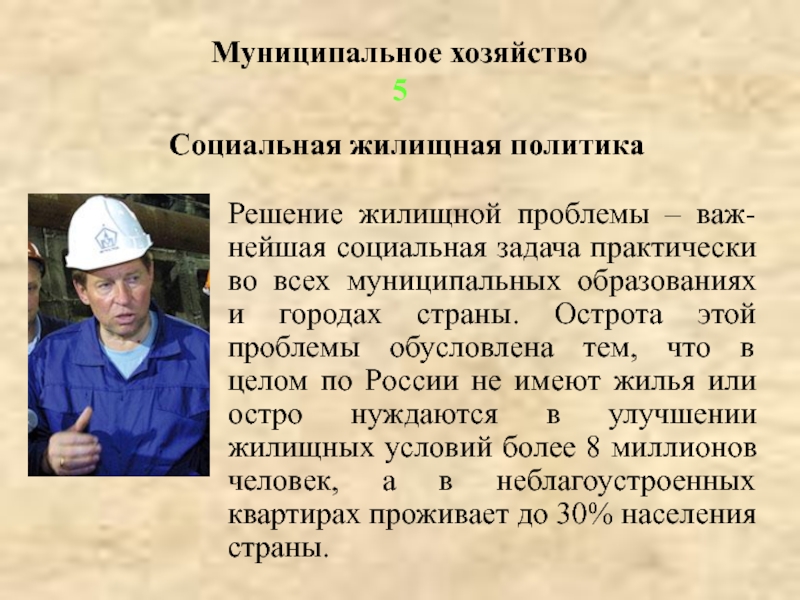Слайд 1Why study law?
To become a more effective business operator by:
recognising
and managing risks
being aware of the law and the legal
environment and how they impact on decision making
To become a more resourceful consumer
Everyone is presumed to know it, so it will be beneficial to know the basic concepts
The law is a reflection of community values (Do you agree?)
Law not only shapes the business environment, but is shaped by business
Слайд 2What is law?
A definition: law is the system of control
(i.e. a set of rules) through which society operates (i.e.
citizens must obey or suffer a penalty)
Law declares how we must behave and consists of those rules which are enforced through the legal system (particularly the courts)
The system is more complex in reality as the ‘rules’ are affected by social, economic, political and international considerations
Слайд 3Law, order, morality & justice
Preservation of order within the community
(e.g. road rules)
Society’s values:
changing
competing
‘victimless’ crimes
Fair treatment
The rule of law
Слайд 5What is a legal system?
The totality of laws that regulate
a state (i.e. a legally organised community)
Types of legal systems:
common
law legal systems
civil law legal systems
Religious law – e.g. Islamic legal system, Halakha in Judaism, Indigenous legal system
Слайд 6Genesis of a legal system
The basic requirements are that there
should be:
a body of laws
some source with the power necessary
to create and alter those laws
some institution or process with the authority to administer and enforce them
Слайд 7Genesis of a constitution
A constitution is the basis of the
legal system of any state
‘[A constitution is] the system of
laws, customs and conventions which define the composition and powers of the organs of the state and regulate the relations of the various state organs to one another and to the private citizen.’
Professor Hood Phillips, Constitutional and Administrative Law, 5th ed, 1973
Слайд 8Civil law
Is the most widespread system of law in
the world. It is also sometimes known as Continental European
law. Civil law systems mainly derive from the Roman Empire.
Civil law was also partly influenced by religious laws such as Canon law and Islamic law.
Слайд 9The legal system of the Republic of Kazakhstan, along with
legal systems of Italy, France, Germany, Austria and other countries,
belongs to the Roman-German legal system.
As opposed to the Anglo-Saxon legal system (England, the USA), where judicial precedents are the main legal
Слайд 10sources, Roman-German legal system has a single hierarchically structured system
of enacted law sources.
The Constitution has the highest juridical force
on the entire territory of Kazakhstan.
International treaties ratified by Kazakhstan have priority over its domestic laws .
Слайд 11Common law
Common law are systems of law whose sources
are the decisions in cases by judges.
Common law developed in
England.
Almost every former colony of the British Empire has adopted it.
Hong Kong, India, Pakistan, USA and other places.
Слайд 12Religious law
Religious law refers to the notion of a
religious system, being used as a legal source.
The main kinds
of religious law are Sharia in Islam, Halakha in Judaism and Canon law in some Christian groups.
Religious law countries: Afghanistan, Bangladesh, Iran, Saudi Arabia, Sudan, Yemen.
Слайд 13Pluralistic systems
There are some countries that using two types of
the legal systems.
These countries are called pluralistic countries.
For example: Civil
law and religious law countries, Bahreyn, Indonesia etc.
Common law and religious law,
Nigeria, Malaysia etc.
Слайд 14The sources of law
Customary law
The law established by the habitual
use of a group of people over a long period
of time
Common law
The law developed by the courts
Legislation
The laws made by the body recognised by the legal system as having the supreme power and authority to make laws (usually the Parliament)
Слайд 15Characteristics of the law: certainty
People in both their personal and
business lives should be able to:
form relationships with others
enter into
contracts, such as those relating to marriage and the acquisition and disposal of property
reasonably secure in their knowledge of what they are doing and their understanding of its effects
Слайд 16Characteristics of the law: flexibility
The law must be able to
respond without undue delay to the challenge of change at
all levels of society
Слайд 17Characteristics of the law: fairness
The effectiveness of law depends upon
its acceptance by members of society and that will not
be available where a law is inequitable, unfair or unreasonable
Слайд 18Characteristics of the law: accessibility
All should have access to knowledge
of the law, either directly or through intermediaries
‘[T]o bind the
citizen by a law, the terms of which he has no means of knowledge, would be a mark of tyranny.’
Sir Garfield Barwick, Watson v Lee (1979) 144 CLR 374 at 379
Слайд 19Classification of the law: public law and private law
Public law
regulates
the interaction of citizens with the state
(e.g. criminal law, constitutional
law, administrative law)
Private law
regulates the relationship between individuals within a state (e.g. contract law, tort law, property law)
Слайд 20Public law
administrative law
company law (some)
constitutional law
criminal law
industrial law (some)
taxation and
revenue law
trade practices law (some)
Слайд 21Classification of the law: criminal law and civil law
criminal law
generally
aims to punish
civil law
generally aims to compensate
Слайд 22Contract
Contract has been defined as a legally binding agreement or
a promise which the law enforces.
The first requisite of any
contract is an agreement.
Слайд 23The ingredients of a valid contract
An agreement , between two
or more parties.
The parties must be definite and ascertained when
the contract is made.
They must agree to enter into legal relations for a consideration, for money or something valuable.
The object and purpose of the arrangement must be lawful.
The parties must be competent to contract
Слайд 24They must be acting freely and without constraint.
Слайд 25Capacity to contract
Every person who is a major according
to the law applicable to him, and of sound mind,
is competent to contract.
In Kazakhstan, the age of majority is 18.
A contract by a minor is void, and cannot be ratified by him.
If a person has entered into a contract with minor, he cannot recover the price from him.
Слайд 26Formation of contract
A person called the promisor (offeror) makes a
proposal or offer.
The proposal or offer is accepted by the
person to whom it is made, who is called the promisee (offeree).
The acceptance is communicated to the promisor.
An agreement comes into existence.
Слайд 27Franchising
Franchising is an arrangement between two persons under which,
one permits the other to do certain things, in accordance
with the directions of such person.
Example: Where a person who has built up a brand of fast foods, licenses it to another to sell such fast foods strictly in accordance with the instructions of the person who licenses him.
Слайд 28The arrangement is mutually beneficial.
From the point of view of
the licensor, he can expand his business without investing his
own capital and without the need to supervise several outlets closely.
It is beneficial to the licensee as he gets the advantages of the brand built up and being promoted by the licensor. A franchise can take many forms. It can be simply a licensee
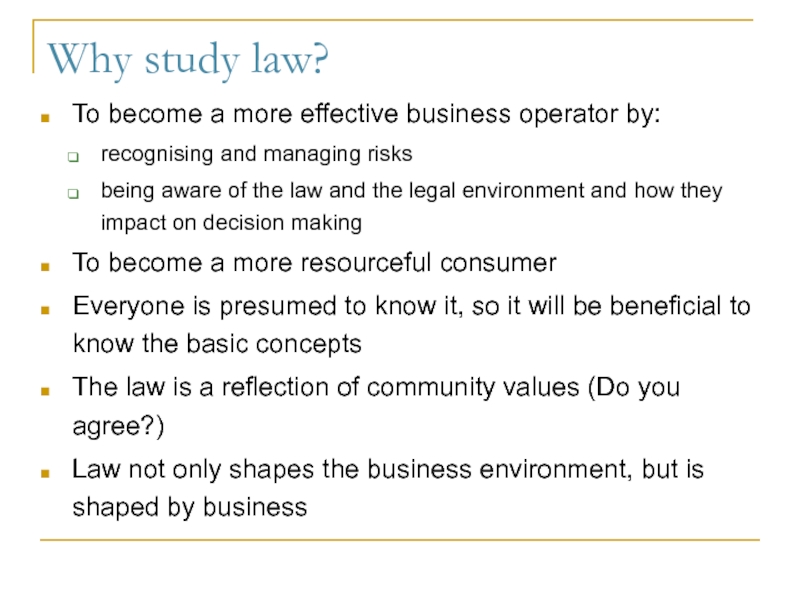
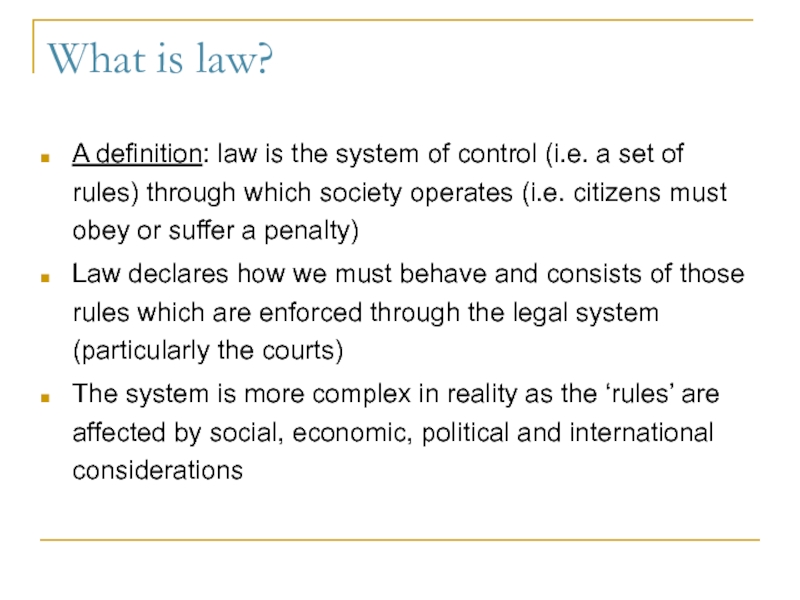
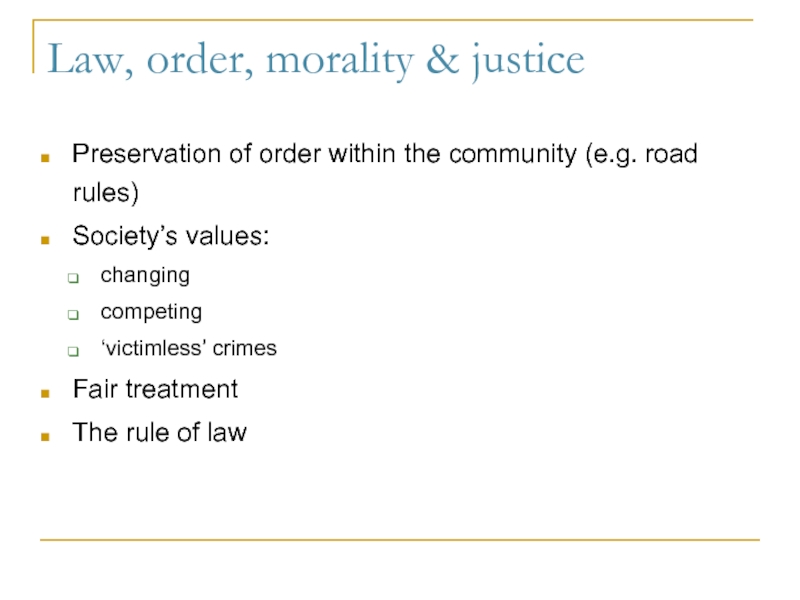
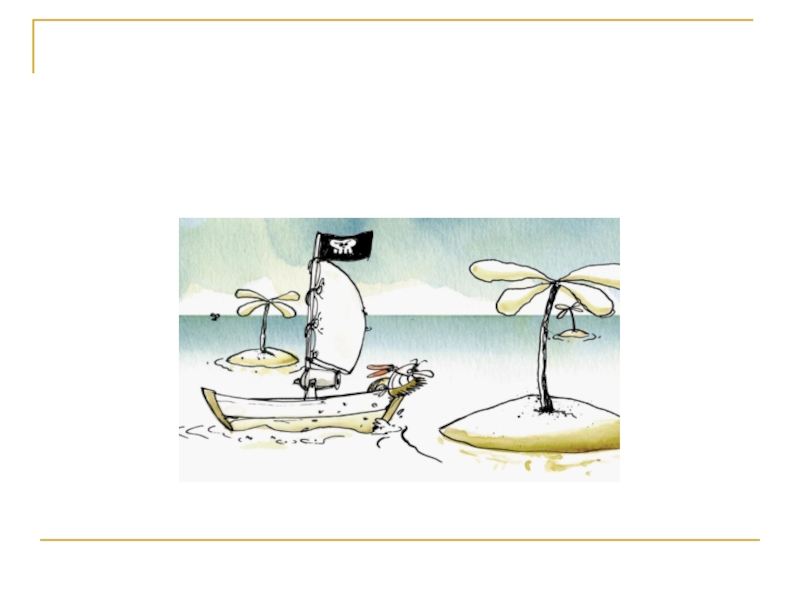

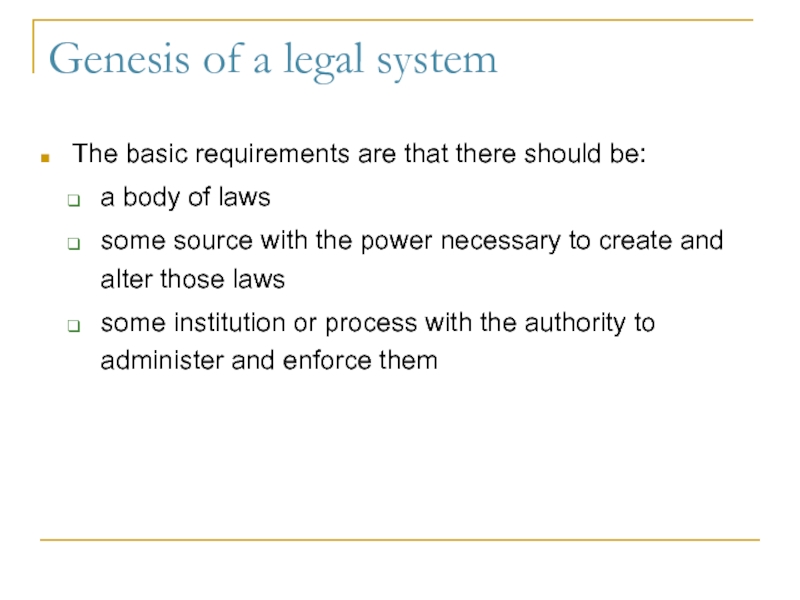
![Why study law? Genesis of a constitutionA constitution is the basis of the legal Genesis of a constitutionA constitution is the basis of the legal system of any state‘[A constitution is]](/img/thumbs/9b6d18915328c6221b8f131f671d41de-800x.jpg)
